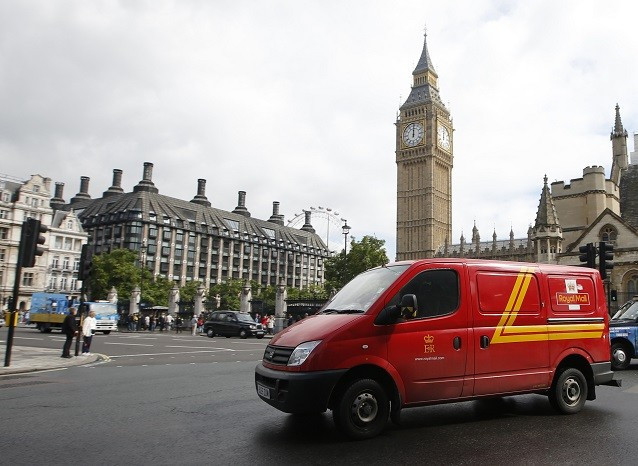Royal Mail Shares Sale to Add £300m to Government Borrowing Figures

Royal Mail's privatisation will add £300m to the government's borrowing figures for October because the 10% of shares handed to employees counts as a gift from the public to the household sector, said the Office for National Statistics.
Moreover, there will be no impact on the public sector budget deficit because the government's sale of Royal Mail counts as a reclassification of assets on the balance sheet and does not affect overall borrowing or spending.
"This is the transfer of share assets from government to households, with no countervailing remuneration made. As such it reduces the net worth of government but will have no direct effect on the government deficit (or surplus)," said the ONS in a document outlining how the Royal Mail sale would be reflected in public finances.
Royal Mail's controversial flotation onto the London Stock Exchange has seen its share price soar well ahead of the government's 330p offer price. On 19 November, they were at the 550p mark amid accusations the government blundered by seriously undervaluing the 500-year-old communications firm.
One leading City of London analyst, David Jones of IG, told IBTimes UK that Royal Mail shares could potentially hit double the 330p offer price because demand has remained so high.
Employees of Royal Mail were given 10% of shares, while the rest were offered to retail and institutional investors.
There was a £750 minimum investment set for retail buyers. There were 93,000 members of the public who had applied for the minimum amount of shares and received them in full. Those who applied for more than £10,000 worth did not receive any shares.
Cable Defends Offer Price
Business Secretary Vince Cable wrote to MPs defending the price at which Royal Mail shares were sold off.
"Delivering value for money is about more than just the level of proceeds received on day one," wrote Cable to parliament's business select committee.
"Our long-term strategy to safeguard the universal service and deliver value for money for the taxpayer involves not only getting good value for the initial stake sold but also getting good value for the residual stake held by government (30% of the Company assuming exercising in full the Over-allotment Option), and leaving Royal Mail in a strong, sustainable position capable of accessing the capital markets in the future."
His letter said the process of valuation ahead of the flotation "comprised a combination of rigorous market testing and extensive analysis of comparable companies in the sector."
This process - overseen by "Global Coordinators" (GloCos) Goldman Sachs and UBS - included meeting with the institutional investors likely to buy Royal Mail shares.
"Given final demand indications from the GloCos, it was agreed that 330p was an appropriate valuation of our shareholding," wrote Cable.
"This was endorsed by Lazard," the government's independent adviser.
He also admitted that he had, late on, considered a higher offer price - but decided against it.
"Revising the price range upwards late in the bookbuild was considered given the demand generated," Cable wrote.
"However this was not pursued based on an assessment of the composition of demand in the order book and an assessment of where demand would taper off, especially from informed potential long-term investors."
© Copyright IBTimes 2025. All rights reserved.






















